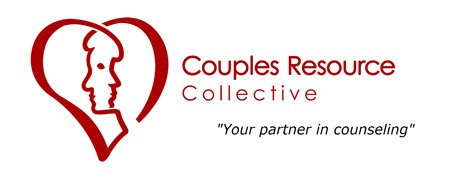Interested in Becoming a Therapist?
If you want to become a therapist but are not sure where to start, this information will be a helpful start. While there are several different types of therapists, psychologists, and counselors (distinctions which we will address in this piece), the path to each profession is fairly similar.
Every one of these positions requires a bachelor’s degree in psychology or a related field, and in a few cases (particularly counseling positions) that alone is enough to start practicing.
Most of these positions, however, require prospective therapists to also go on to earn their master’s degree in psychology or a related field, at which point they can become licensed and start practicing if they have accrued enough supervised clinical experience.
Earning a Ph.D. or Psy.D. will also make prospective therapists more desirable candidates, but it is not necessary for most positions. Read on to see more specific information about becoming therapist, as well as the qualities that make a good therapist.
Counselor vs. Therapist vs. Psychologist
Are they the same thing? If not, what are the key differences between these professions? Depending on the state you live in these terms are often protected by law and might require specific board approved licensure. Below you will find all three with their distinctions described in detail.
Counselor
- Often used as an umbrella term for both licensed clinicians with advanced degrees and those offering other forms of counseling.
- Counselors work with the patient to determine the best way for the counseling sessions to provide preferred outcomes.
- Counselors do not require the same degree of advanced training or licensure to operate.
- Counselors have access to a much broader field of potential models for counseling.
- Counselors lack the in-depth understanding provided by clinical research found in therapy and Psychology
Therapist
- Protected title in some states such as California, requiring licensure to operate
- Can include various kinds of Psychologists, Licensed Social Workers, Counselors and Marriage and Family Therapists.
- Use behavioral approach to therapy
- Different degrees offer routes to the protected title of therapist including but not limited to: Master in Psychology,
- Master in Marriage and Family Therapy, Master of Social Work, Master in Counseling or a Doctorate in any of those fields.
- In some states where this term is not legally protected this can include life coaches and others who may not have the same kind of licensure and degree requirements.
Psychologists
- Usually requiring a minimum of a Master’s degree in Psychology to achieve this title. In rare cases, might include Bachelor’s degree holders.
- In most cases, refers only to those licensed by a state board to provide Psychological therapy.
- Must adhere to high standards regarding ethics and confidentiality as provided by the state board.
- Can be involved in direct therapy with patients in private practice.
- May teach at a college or university
- Might be a leader or part of a team conducting research for a university or private enterprise
- Uses researched based psychological behavioral approach to treating clients
- Can assess and make clinical evaluations of clients mental health and diagnose mental illness
- Make judgments on the best course of treatments based upon current clinical research in the field.
Going into More Detail
A Psychologist is a health professional with specific training based on clinical psychological research into human behavior. Psychology has been studying the mental processes of human beings for over a century and has developed numerous effective methods for dealing with mental illnesses. It also has developed strict codes of ethics and confidentiality that all practitioners must adhere to in order to remain board certified. Psychologists all must regularly receive continuing education to stay current on a variety of topics and maintain licensure. Psychologists undergo rigorous training during their education and must complete thousands of hours of supervised practice in order to become licensed to practice on their own. As such, when someone goes to a psychologist they can be assured that a high standard of ethics, professionalism and confidentiality will be shown by the psychologist. They also will be benefiting from more than 100 years of research and crafting of ethics standards.
Therapist is a term that can include a number of disciplines with different approaches. From the Psychologist described above to the Licensed Social Worker, the Marriage and Family Therapist and the Counselor. In many states, the term therapist is a protected term that can only be used by the previously mentioned disciplines and only by those who have licensure with their state board. In some states the term is restricted even further and only some of the disciplines may have this as part of their title. As it is a protected term, you can be assured of a higher degree of professionalism, ethics and confidentiality as those will be required by the various state boards for those disciplines.
The Counselor is a term that can include both the licensed Counselor (who can also hold the title therapist) and a variety of other occupations from diverse backgrounds such as life coaches or those with little or no training at all. In fact the term counselor is the equivalent of advisor and could encompass such diverse groups as clergy and other spiritual advisors and even financial advisors. While some gifted individuals are able to achieve fantastic results, have a high degree of professionalism, ethical standards and confidentiality, the lack of licensing creates fewer barriers to entry for the less scrupulous. Seeing a counselor who is not also a licensed therapist may be cheaper, but it would be wise to do extensive research on the counselor before opening up with intimate details of one’s life. As is the case with all unlicensed professions there are both fantastic individuals and those who are simply trying to profit at your expense. Being extremely careful in your choice of mental health provider is highly advisable.
Do You Need To Be A Psychologist to be a Therapist?
The difference between a psychologist and a therapist (and the difference between those two and a counselor) is an important one to define, as some people think the two careers are identical. This is understandable, since we often think of both therapists and psychologists as professionals who help people with their problems.
While psychologists can also be therapists, the two careers are not interchangeable. This is because non-psychologists can also be therapists. Then, to answer the question posed by the subheading, no, one does not need to be a psychologist to be a therapist.
In general, psychologists have the highest educational requirements and are held to the highest ethical standards, followed by therapists, then counselors. Therapists are regulated at the regional level while psychologists have more standardized career paths, some therapists might be as qualified as psychologists while others might not be. It might also be easier to find a therapist suited to your needs (for example, marriage and family therapists) than it is to find a psychologist specifically suited to your needs.
As for counselors, there is a wide range of educational requirements and ethical standards for counselors. Some might be licensed and just as qualified as a psychologist or therapist, while others might be unlicensed or less educated. This does not necessarily mean that counselors are worse than therapists or psychologists, however, as it all comes down to the individual case.
Education Required to be a Psychologist
To put it simply, most psychologists have either a Ph.D. in psychology or a Psy.D., otherwise known as a Doctor of Psychology degree. To distinguish between the two, a Ph.D. is completed with research towards a dissertation, while a Psy.D. is based more on clinical work. Some psychologist jobs can be obtained with a master’s degree as well without needing a higher degree.
Whether one is planning to earn a master’s degree or a Ph.D. or Psy.D., one first needs to earn a bachelor’s degree in psychology or a related field. Prospective psychologists can also major in a non-psychology field, but should complete at least some psychology-related coursework while earning their degree. Once these educational requirements are complete it is only a matter of acquiring the necessary licensing.
Some types of psychologists require extra levels of education. For example, school psychologists might require an education specialist degree (Ed.S.) before they can start working in certain schools. This degree includes a supervised internship consisting of over 1,000 hours of work. Some other psychologists might also require supervised experience in an internship or other clinical setting, depending on the jobs they are seeking out.
Counseling Degree Requirements
Degree requirements for prospective counselors depend on what type of counseling one wants to do. To be a school or career counselor, one usually needs a master’s degree in school counseling or a related field, or a master’s degree in counseling with a focus on career counseling or a related field, respectively. Many regions also prefer school counselors to have teaching experience before getting licensed.
To become a rehabilitation counselor, one needs a master’s degree in rehabilitation counseling or a related field. Some schools offer five-year programs where prospective counselors can earn a both a bachelor’s degree and a master’s degree in rehabilitation counseling. Bachelor’s degrees are also necessary for anyone looking to enter a master’s degree program.
To become a substance abuse or behavioral disorder counselor, one usually only needs a bachelor’s degree. A master’s degree, however, can help a prospective counselor find work more easily. A mental health counselor should have a master’s degree in clinical mental health counseling or a related field.
Regardless of the type of counselor one wants to be, most regions require additional licensing. This licensing is made up of hours (around 2,000 to 4,000 in some cases) of supervised counseling experience along with passing a test.
Education Required to be a Therapist
Degree requirements for therapists vary depending upon the school and the ambitions of the individual. A master’s degree is the minimum educational qualification needed to be a licensed therapist but some prefer to obtain their Ph.D or Psy.D as well. Most grad students in a marriage and family therapy program have a bachelor’s degree in psychology but many have a bachelor’s degree in other areas of study.
Most master’s level MFT programs are between 2-3 years but can take up to 4. Doctorate programs are generally about 2-3 additional years of coursework as well as an additional 2-3 more for dissertation. It is important to choose a school with the proper accreditation (COAMFTE and/or CACREP), this ensures licensing boards will recognize your education as qualified for accruing supervised clinical experience (at a site like Couples Resource Collective) and sufficient to sit for licensure examinations. After completing the coursework and the school’s particular clinical requirements (practicum) you will need to pass a comprehensive exam. Following a successful exam you may apply for an registered associate number (formerly know as an intern number). You will be required to complete 2000-3000 supervised clinical hours (depending on the state requirements) and pass two exams (the Law and Ethics and the Clinical Exam) before being able to apply for licensure.
What Kinds Of Therapists Are There?
Since therapists can help a wide variety of people, there are several specializations within the profession of a therapist. Some of these types of therapists include marriage and family therapists, behavioral therapists and occupational therapists.
Many of these therapist positions have similar educational and career paths, but some have specific requirements as well.
How Long Does it Take to Become a Therapist?
In most cases, becoming a therapist will take at least around 8 to 10 years following graduation from high school. All therapists need a bachelor’s degree (which takes four years to earn on average), some work experience or volunteering experience, and then a master’s degree (which takes about two to three years on average to earn) or a doctoral degree (which takes about five to seven years on average to earn).
This means that if one already has a bachelor’s degree, it is a matter of 4-8 years before they can be licensed as a therapist. Before one can become a licensed therapist they also need hours of supervised clinical work, but most master’s programs include this experience.
What Does a Therapist Do?
Fundamentally, therapists help people overcome their problems. These problems can come in a wide variety of forms and can include substance abuse problems, interpersonal problems with family members or coworkers, or behavioral disorders. What a therapist does depends largely on the type of therapist they are. For example:
- An occupational therapist helps people with temporary disabilities return to their prior level of functioning, and helps people with permanent disabilities live more independently on a day-to-day basis.
- A recreational therapist uses recreational activities such as arts and crafts to help people improve their levels of well-being in general.
- A marriage and family therapist might help resolve interpersonal issues between a married couple, as well as personal issues that either person in the relationship might have.
- According to study.com, a behavioral therapist can help people change the way they behave, such as the way they react to something that often happens in their lives.
- A CBT therapist might help someone identify thought patterns which lead to destructive behaviors and then help change those thought patterns .
- Finally, a child therapist can help a child figure out why they cannot focus in school so that they can develop in a more healthy manner.
In other words, what a therapist does greatly depends on what type of therapist they are. Some therapists only treat people with mental illness, while some therapists treat people with mental illness as well as people who are more mentally healthy since some of the targets of therapy do not depend on the presence of mental illness.
At its base, though, the job of a therapist generally consists of helping someone improve their levels of well-being. Part of this is continuing education, as therapist sometimes have to help treat clients in ways they were not trained to, such as the case of marriage and family therapists who are treating clients interested in nonmonogamy.
What Makes a Good Therapist?
Some of the qualities that are helpful for therapists to have include (in alphabetical order): analytical skills, communication skills, compassion, flexibility, interpersonal skills, leadership skills, listening skills, observational skills, organization, patience, resourcefulness, speaking skills, and writing skills, to name just a few.
In other words, a therapist needs to be able to communicate effectively with a client to be able to figure out what the client is looking for from a therapy session. This includes patience and listening skills since therapists need to understand what someone’s problem consists of before they can start treating it. Therapists also need to be observant, so they can pick up on things that are not necessarily explicitly stated by the client.
While communication is important for all those reasons, a therapist’s job does not simply consist of figuring out what their clients’ main problems are. Therapists also need to be able to effectively treat their clients’ problems. This is why clients need to be resourceful and flexible, so they can treat their clients in an individualized way based on what their clients are able to do.
Finally, therapists need to be organized so they can keep track of all the work they have done with their clients. This record-keeping includes writing skills and speaking skills so that the therapist and the client are always on the same page. This mutual understanding is key to any therapy session.
How To Become a Marriage & Family Therapist
Marriage and family therapists help families, individuals and couples overcome interpersonal issues with each other, and also help treat individuals who have mental health issues which affect their familial relationships. For example, a marriage and family therapist might help a married couple understand why they have been fighting more and more. A marriage and family therapist might also help a family learn how to better deal with one of their member’s anxiety issues.
To become a marriage and family therapist, one must first earn a bachelor’s degree, as always, majoring in psychology is a good start. After that, one can enter a master’s program in psychology, marriage and family therapy, or a related field. In California, after earning a master’s degree, one can then be licensed as a marriage and family therapist after completing 3000 supervised clinical hours and passing the Law and Ethics and California Clinical Exams. The Board of Behavioral Sciences oversees the licensing and regulation of all MFT’s in the state of California.
How To Become a Behavioral Therapist
Behavioral therapists help people overcome unhealthy behaviors, such as behaviors that are self-destructive. For example, a behavioral therapist might help someone with depression stop sabotaging career opportunities for themselves. Behavioral therapists treat people with mental health disorders, though these mental health disorders can vary from trichotillomania to substance abuse issues.
According to the website Study.com, someone who wants to become a behavioral therapist should first earn a bachelor’s degree in psychology or a related field. After earning a bachelor’s degree, one can start working as a behavioral disorder counselor. If one wants to be a licensed behavioral therapist, though, they can start working on their master’s degree in psychology or counseling.
After earning their master’s degree, it is a matter of licensing. Licensing requirements vary by region, but to give an idea, every state in the United States requires a master’s degree along with 2,000 to 4,000 hours of supervised clinical experience for behavioral therapist licensing.
How To Become an Occupational Therapist
Occupational therapists help people with physical and mental health issues to be more independent. Occupational therapists also “aspire to promote dignity… and an adequate standard of life” for their clients. For example, an occupational therapist might help someone who is new in a wheelchair figure out how to live their day-to-day life in an independent matter. Occupational therapists also help their client’s family members or caregivers understand how to best help the client in their day-to-day activities.
To become an occupational therapist, one should first earn a bachelor’s degree in a program that includes some coursework in biology or a related field. After earning a bachelor’s degree, prospective occupational therapists should volunteer or otherwise work in an occupational therapist’s office to gain experience.
From then, prospective occupational therapists should be qualified for a master’s degree in occupational therapy, which is the requisite degree for most jobs. After earning a master’s degree, one needs to complete occupational therapist licensing, which is administered in the United States by the National Board for Certification in Occupational Therapy (NBCOT). From there, one should be ready to start looking for work.







